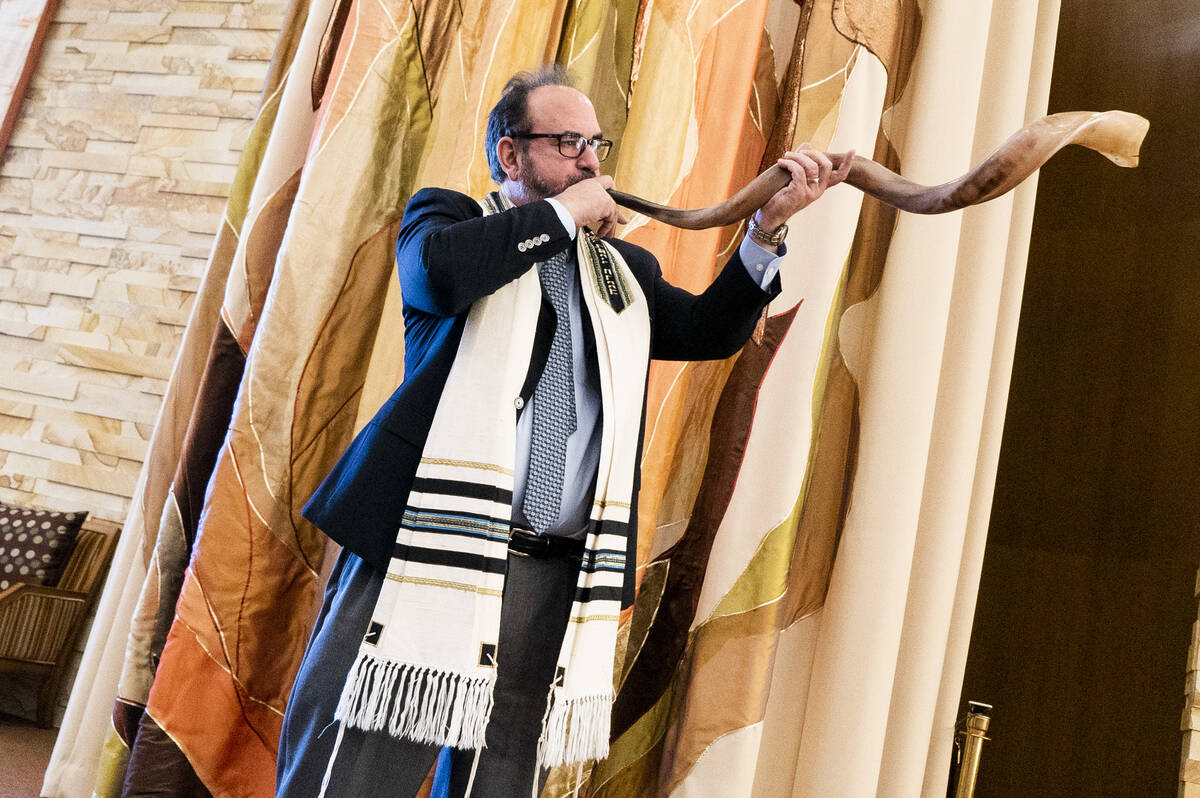More Rosh Hashana services to go live, but COVID concerns remain

When Southern Nevadans gather for Rosh Hashana services Monday evening, they’ll find, if not a complete return to pre-pandemic life, more options for in-person worship than they had last year.
However, area rabbis also expect continuing concerns about COVID — and its highly transmissible delta variant — to lead many to again worship virtually, while in-person attendees may encounter requests to wear face masks and even be asked to provide assurances that they’ve been vaccinated.
Rosh Hashana, the Jewish New Year, begins at sunset Monday and ends at sunset Sept. 8. It marks the beginning of the Days of Awe or High Holy Days, a 10-day period of repentance and prayer that concludes on Yom Kippur, the Day of Atonement, which this year begins at sunset Sept. 15.
Last year, the COVID pandemic forced some congregations to replace in-person observances with virtual or livestreamed services. This year, worshippers will find both options around the valley, although attendance requirements may vary from congregation to congregation.
At Congregation Ner Tamid, the board of trustees has adopted guidelines that require congregants, visitors, volunteers and staff who enter buildings to wear face masks and be fully vaccinated, said Rabbi Sanford Akselrad.
According to Akselrad, the requirements grow out of “pikuach nefesh,” the value in Judaism that gives the preservation of human life precedence over all other commandments.
Response so far has been “overwhelmingly positive and appreciative,” Akselrad said. “Ninety-nine point nine percent are appreciative and have reached out and expressed it, and there are some who feel (the policy is) isolating and the policy is misguided.
“But people who are not vaccinated have an option, which is (to watch) the service online. And even people who are vaccinated who still don’t feel comfortable can watch online.”
Akselrad expects that two-thirds of congregants will choose to watch Rosh Hashana services online, while the remaining one-third will attend live services
“I think people are just nervous with the delta variant, because there have been some breakthrough cases (in vaccinated people). And that makes some people nervous.”
Temple Sinai will offer both livestreamed and live services for Rosh Hashana. Rabbi Malcolm Cohen said congregants will wear masks and either be vaccinated or have tested negative for COVID within the previous three days.
Cohen said he expects in-person attendance to total about one-third of what it normally would be.
“We still get people who appreciate” the COVID requirements, Cohen says, although some members remain home out of concern for being in larger crowds than they feel comfortable with.
“Just with the delta surge, people are still a little bit nervous.”
Chabad of Southern Nevada doesn’t offer virtual services. While masking will be requested at Rosh Hashana, “we are not requiring vaccination, but we encourage vaccination,” said Rabbi Shea Harlig.
Social distancing measures also will be practiced, he said.
Some congregants who still haven’t returned to in-person services “have told me they’re waiting for the delta variant” to disappear, Harlig said. “They still plan to be members of the congregation but they’re still waiting.”
Contact John Przybys at jprzybys@reviewjournal.com. Follow @JJPrzybys on Twitter.